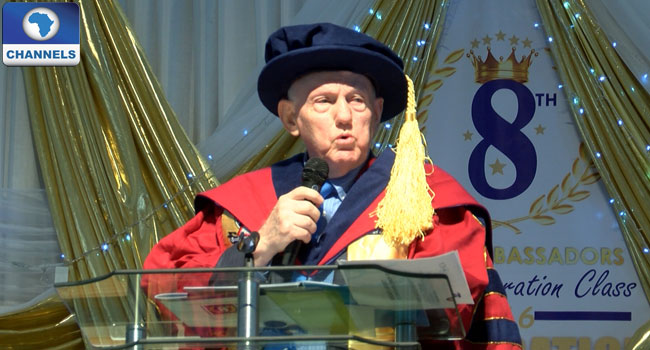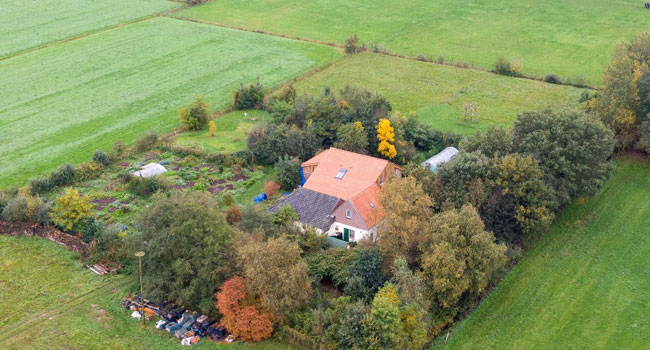
He suggested the formulation of long term oriented policies, stressing that patient and non political commitment are needed to overcome the recession.
According to Mr Kramer, these, in addition to hard work, will bring about lasting and strong economic growth.
“Dutch Disease”
Delivering a lecture on the topic “Nation Building And Nigeria’s Economic Challenge” at the Redeemer’s University Convocation, ceremony in Ede, Osun State, Mr Kramer said it was also imperative to understand that Nigeria was suffering from the “Dutch Disease” and would require the support of all stakeholders to bounce back.
He identified the characteristics of the “Dutch disease” as spending oil revenues without savings, spending on consumption and not building the future economy and the private sector not fully mobilised.
Mr Kramer, who is also the chairman, African Capital Alliance, pointed out that “from an economic standpoint, it is clear that Nigeria should develop beyond petroleum to an economy that benefits from all its natural and human resources.
“Petroleum can provide much of the investment capital required but we need to attract Nigerian and international investment capital by developing what economists refer to as enabling environment.
“The details of an attractive investment climate have been well developed by economists and business leaders.
“Nigeria’s challenge is to define an economic strategy which uniquely builds on our comparative advantage and meets the needs of both investors and consumers as well as provide productive jobs for our growing population,” Mr Kramer told the gathering.
He further called for some practical ways which he believed if adhered to could salvage the economic recession in Nigeria.
“The most practical way in my view is to first implement the proposed ‘Emergency Power’ effectively so we make up for the lost time and gain momentum.
“Then, Nigeria has to take steps to forge an effective public-private partnership,” he stated.
Mr Kramer also advised the government to also develop a three-to-five-year Plan which will have a broad private sector support and finally foster long term nationwide support for implementing Nigeria’s Long term economic plan”.
Nigeria’s economy had slipped into recession, as indicated in a second quarter report of the National Bureau of Statistics.
The report showed that the nation’s Gross Domestic Product (GDP) contracted by 2.06 per cent.
According to the report, the decline has caused the Naira to get weaker while lower oil prices dragged the oil sector down.
The report also showed that agriculture had picked, showing the government’s determination to shift the nation’s revenue source away from crude oil to agriculture.


